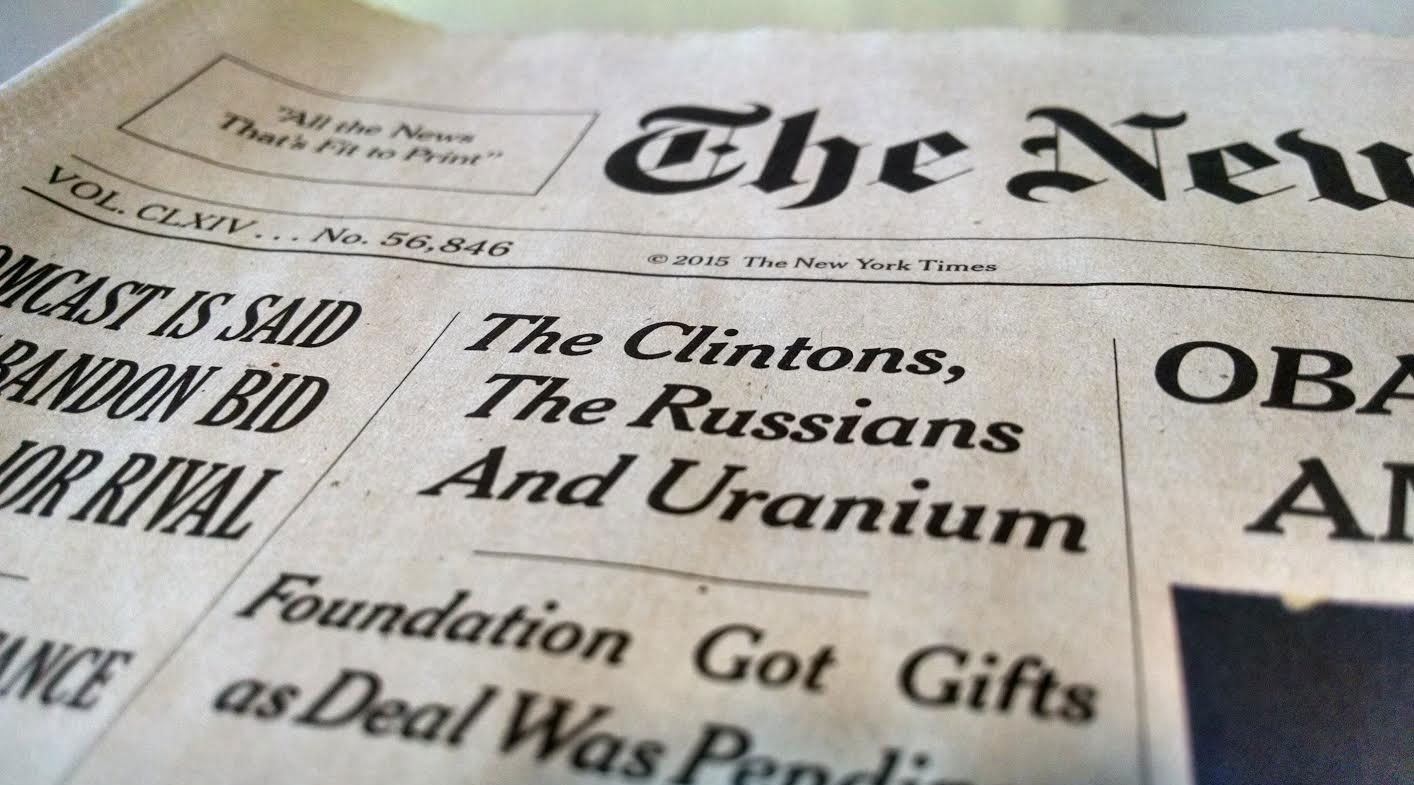
NBC News has conceded that the flimsy anti-Clinton allegations contained in a New York Times report fail to deliver on the hype surrounding them. The Times report was based in part on a chapter from discredited conservative author Peter Schweizer's Clinton Cash, and a series of facts surrounding the story's allegations supports NBC's negative conclusion.
The Times story suggested that donations to the Clinton Foundation may have influenced Hillary Clinton's State Department, when they signed off on the sale of Uranium One, a Canadian company with uranium mining claims in the U.S., to Rosatom, a Russian atomic energy agency. Alleging that individuals who had previously donated to the Clinton Foundation may have benefited from the deal, the Times' reporting has been used as the springboard for commentary hyping the supposed connection, despite the lack of evidence.
But the April 24 First Read column on NBCNews.com admits, “upon reflection, that Times article doesn't hold up that well 24 hours after its publication.”
Indeed, a series of facts supports NBC's conclusion and unravels the innuendo in the Times piece:
- Ian Telfer, who was Uranium One's chairman at the time it was being taken over by Rosatom, did donate money to the Clinton Foundation. However, he told the Financial Post that he committed those funds to the Foundation in 2008, “before Uranium One had any negotiations with the Russians, and the donations he has made since then were part of that initial pledge.” Hillary Clinton also did not become secretary of state until 2009.
- Frank Giustra, a Canadian businessman who the Times noted also donated to the Clinton Foundation and who owned the predecessor to Uranium One before its sale to the Russians, sold his personal stake in the company in 2007. The proposed sale of Uranium One occurred in 2010. Giustra himself released a statement criticizing the Times' reporting, calling it “wildly speculative, innuendo-laced,” and inaccurate, and noting that contrary to the Times' claim that Bill Clinton had flown with him to conclude a stage in the Uranium deal, “Bill Clinton had nothing to do with” that purchase.
- The State Department only had one vote on the nine-member Committee on Foreign Investment in the United States (CFIUS) that approved the deal. Other agencies, including the Departments of Defense, Homeland Security, Energy, Commerce, and Justice, also weighed in.
- The chairman of the CFIUS is the Treasury secretary, not secretary of state.
- Rosatom had to get approval from the Nuclear Regulatory Commission, which is an independent agency outside of the secretary of state's influence.
- Utah's local nuclear regulator also had to sign off on the deal, as it involved mills in the state.
- Former assistant secretary of state Jose Fernandez, who was the State Department's principal representative on CFIUS, said, “Secretary Clinton never intervened with me on any CFIUS matter.”
Other media outlets have found that this and additional allegations in Schweizer's book about donations to the Clinton Foundation are unpersuasive. Time magazine noted that Schweizer's allegation about Uranium One “is based on little evidence,” and “offers no indication of Hillary Clinton's personal involvement in, or even knowledge of the deliberations,” while CNN's Chris Cuomo noted that the “the examples that have come out so far in [The New York Times] were not that impressive.” ABC News reported that Clinton Cash “offers no proof that Hillary Clinton took any direct action to benefit the groups and interests that were paying her husband,” while Fox News' Ed Henry noted “there's a lot that's murky” in Schweizer's claims.
Even Times writer Patrick Healy admitted that the allegations are “not smoking guns.”
Image via Flickr user samchills